In the decentralized world of cryptocurrency, the Ethereum Foundation is seen as a guardian of technological and value neutrality. However, a recent split triggered by core developer Péter Szilágyi has shattered this facade of trust.
Dissolution of the Geth Team, EF Enters Internal Conflict
Geth (Go Ethereum) is the most commonly used execution client on the Ethereum network, with about 41% of nodes relying on it. The network's stability and decentralization heavily depend on the quality of its development. Recently, Ethereum core developer and Geth client developer Péter Szilágyi mentioned in a retrospective that years ago he proposed to provide small grants to the authors of key dependencies for Geth (such as go-leveldb) to incentivize them to continue maintaining the relevant code. At that time, he hoped to offer a grant of $10,000 but was told that only $500 could be allocated, and anything above that would require a contract and deliverables.
However, according to Szilágyi, during the same period, the Ethereum Foundation was able to provide a $5 million grant to Parity without any conditions, on the grounds that "Ethereum needs a second client because Geth is unreliable." This became an enduring imbalance in Szilágyi's mind: both are critical infrastructure for the protocol, yet the Geth team had to scrape by while competitors could easily obtain large grants.
As time went on, this imbalance gradually evolved into a crisis of trust. Szilágyi revealed that the Foundation had formed a new Geth team internally at Nethermind and explicitly stated that this was a "completely independent, unintentional fork." More critically, the original Geth team was not informed in advance; Szilágyi only learned of this after discovering it himself.
In response to Szilágyi's repeated accusations, Ethereum Foundation co-executive director Tomasz K. Stańczak publicly stated, "There are currently no plans to remove Geth. It is an excellent client software, and a great team is contributing to the security of the protocol. We will continue to maintain and support Geth and are committed to making it better and faster."
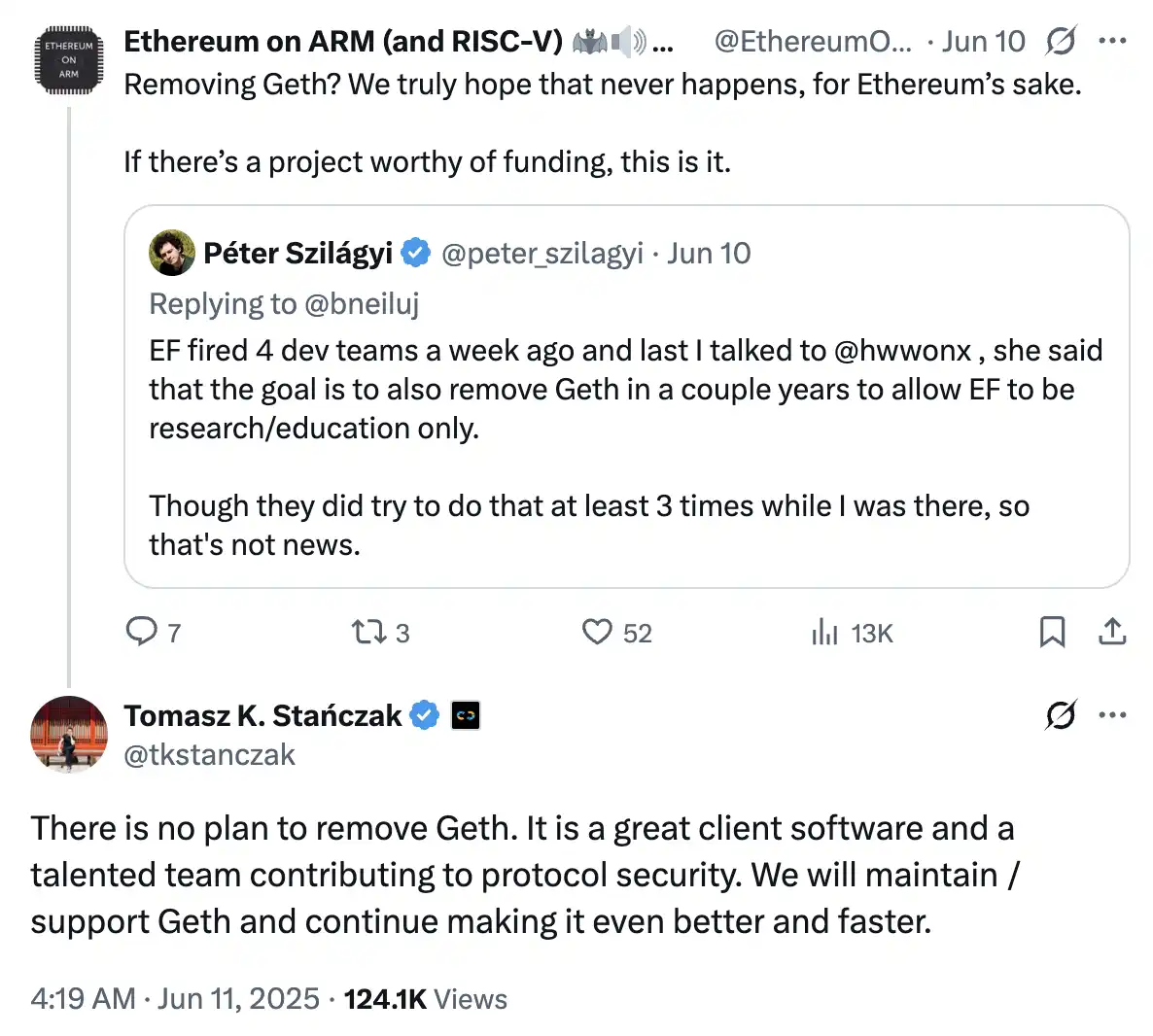
Tomasz is also the leader of Nethermind, which has now become one of the most important infrastructures in the Ethereum ecosystem, alongside Geth, Besu, and Erigon as one of the five major execution clients.
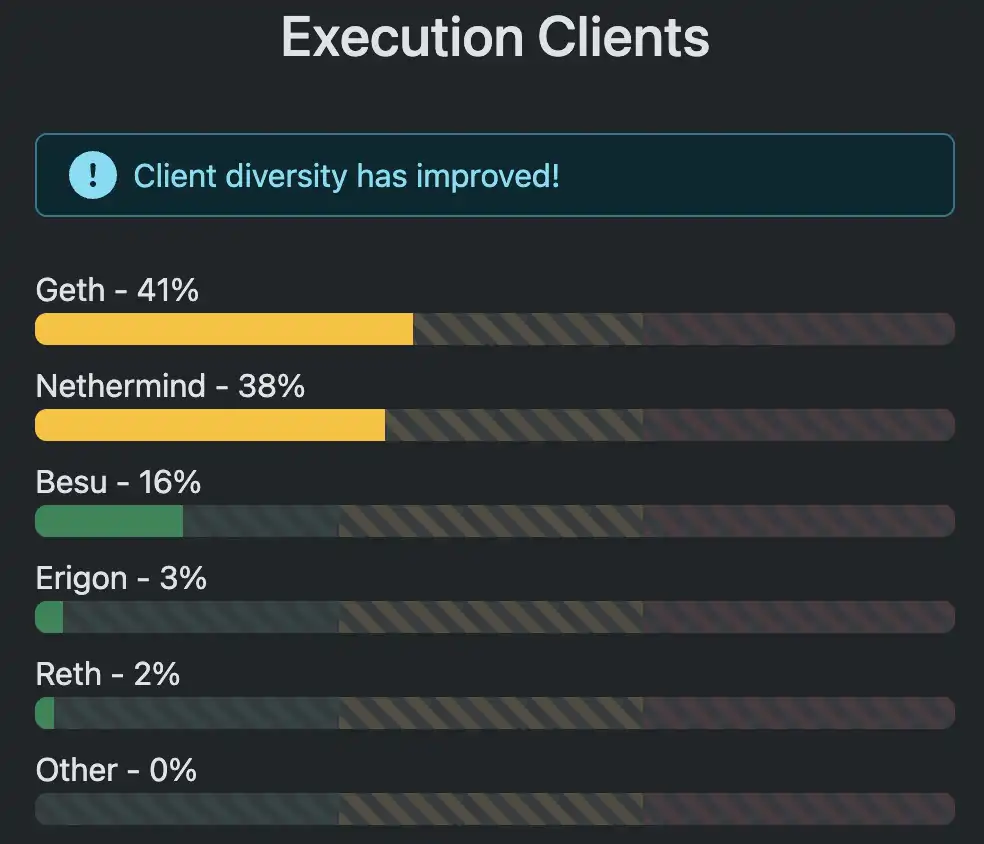
However, this statement is clearly at odds with Szilágyi's disclosures. Szilágyi even publicly challenged the EF leadership with "Dare to deny?" and named several Foundation executives who had privately proposed making the Geth team an independent company, separate from the EF, which the team rejected three times.
Szilágyi stated that Tomasz had recently approached most of the developers still with Geth, telling them they could start interviewing with other companies because he felt their salaries were too high, and asked how many would leave if their salaries were cut in half. "Come on, deny it! Remember that vacation I took? Yes, that was after my one-on-one conversation with @0xstark about the secret second Geth team I discovered. I was fired by the Foundation within 24 hours."
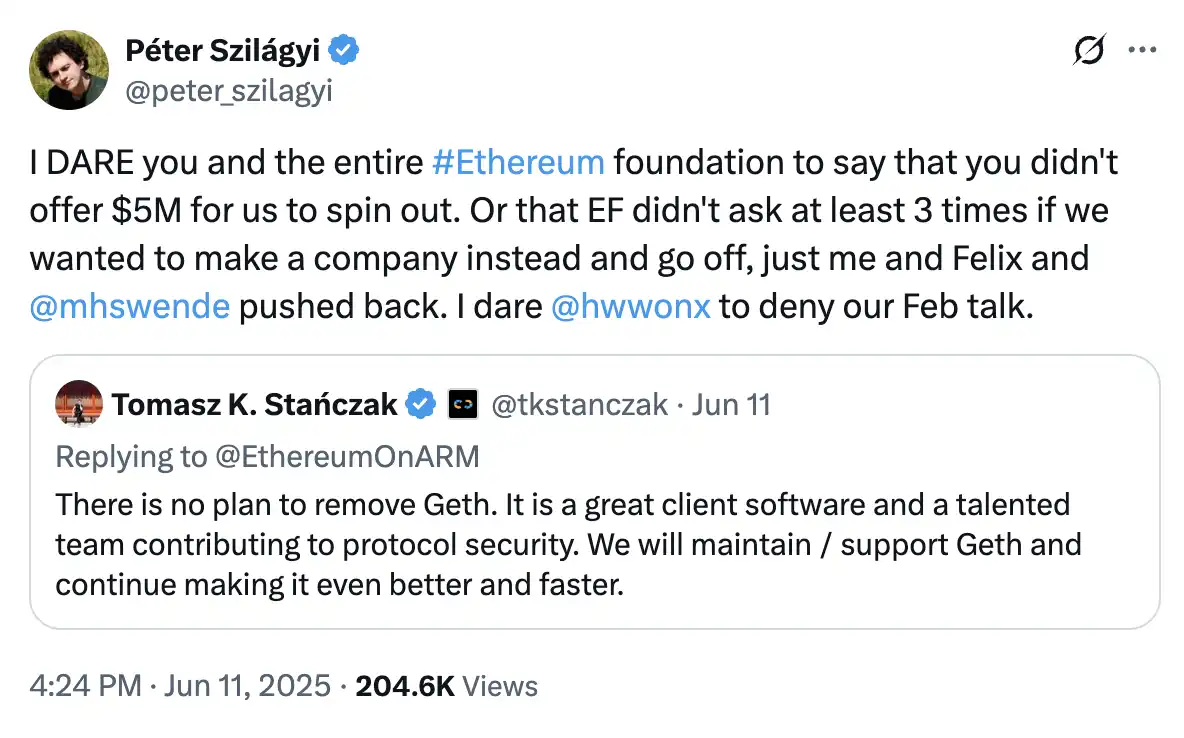
"I dare you all at the Ethereum Foundation to stand up and say: you did not propose $5 million for us to split off? Or that the Foundation did not at least three times ask us if we wanted to form a company and go independent, which I, Felix, and @mhswende rejected? I dare @hwwonx to deny our conversation in February."
Developer banteg questioned Szilágyi on why he did not accept the $5 million separation fee and go solo. Szilágyi's response was that as developers, "we are not good at running companies, and we do not have the necessary infrastructure or team support; the whole thing would ultimately fail."
According to Szilágyi, the intensity of the situation goes far beyond disagreements over team management or resource allocation; it directly touches the foundations of power dynamics and trust systems within the Ethereum ecosystem.
As a key module maintaining the normal operation of the Ethereum network, Geth should receive continuous and stable support. However, the reality is quite the opposite: it has neither received resource allocation commensurate with its importance nor enjoyed long-term trust from the Foundation. For Szilágyi, this institutional neglect has gradually eroded his initial confidence in this endeavor—a decentralized experiment that once excited him and to which he devoted himself is now becoming increasingly disheartening.
From Enthusiasm to Disappointment: Péter Szilágyi's Journey with Ethereum
Péter Szilágyi is a core member of the Ethereum Foundation and the lead developer of Geth, the most important execution client for Ethereum. If he had not left the Ethereum Foundation, this year would mark his tenth year working on Ethereum, which was also his first job after graduation.
In 2015, Szilágyi accepted a "trial task" proposed by Ethereum core developer Jeff Wilcke: "This is a mess; you fix it, and you can ask me if you have questions." Thus, he began participating in the development of Geth.
Szilágyi's major was computer science, and his research background is in distributed systems, particularly passionate about networking. During his master's program, he focused on building distributed hosting platforms, frustrated by the inefficiency and fragility of manual configurations, and aspired to develop a computing system that could operate autonomously without human intervention. "After graduation, I wasn't necessarily looking for blockchain work; I was looking for jobs that would allow me to make computers run on their own, and then I encountered Ethereum," Szilágyi described his encounter with Ethereum.
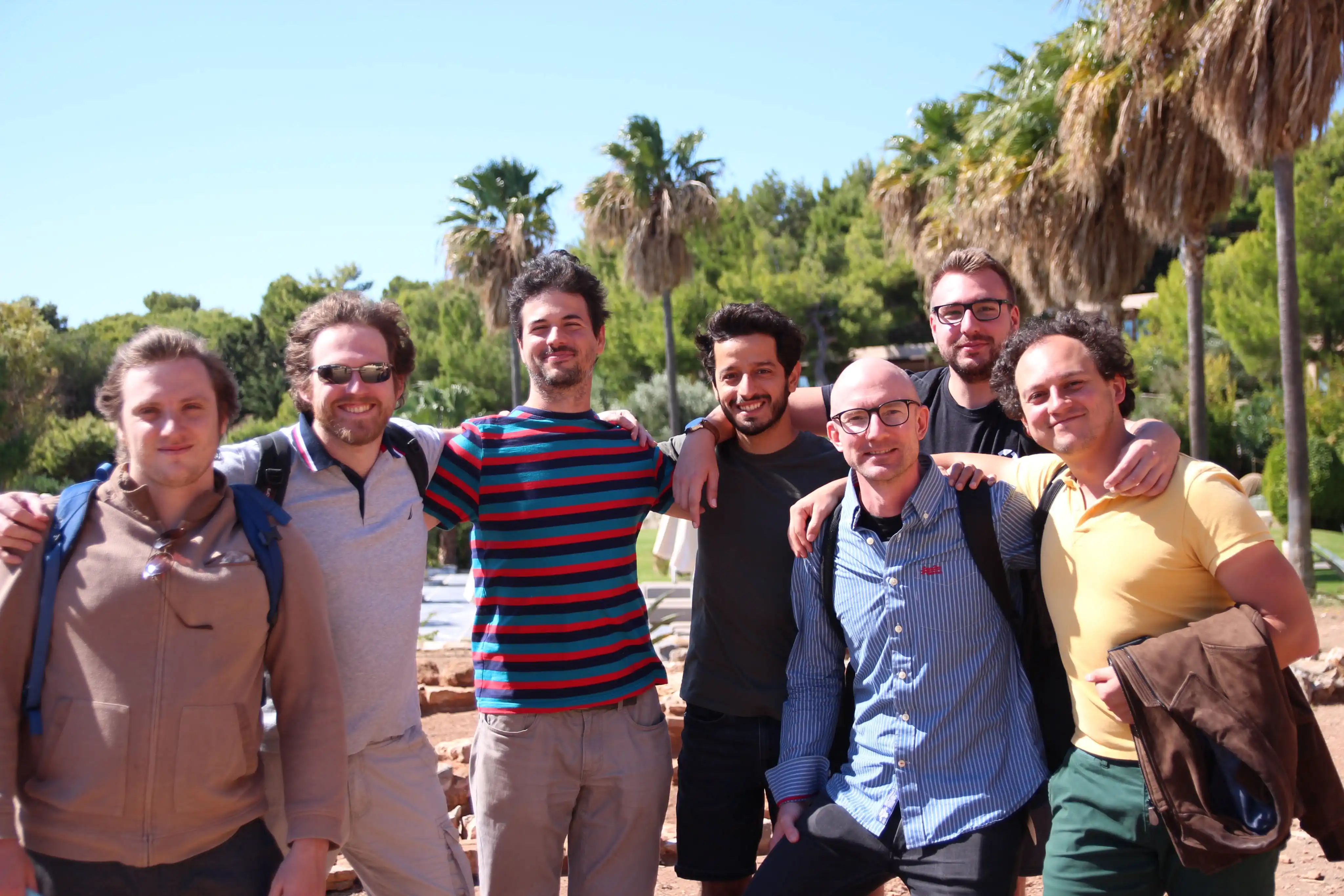
In 2021, the Geth team took a group photo, with Szilágyi on the far right.
In an interview with Bankless, Szilágyi stated that in the last few years working with the Geth team, most of his work has been patching things up. In his early years, his motivation was "to create, release, and tinker," but that drive has mostly faded. Gradually, it transformed into a sense of responsibility: he realized he was maintaining an extremely valuable network and was one of the few who truly understood and could maintain it. "This work is indeed not as interesting, but it is fulfilling; you gain a sense of satisfaction from being part of it."
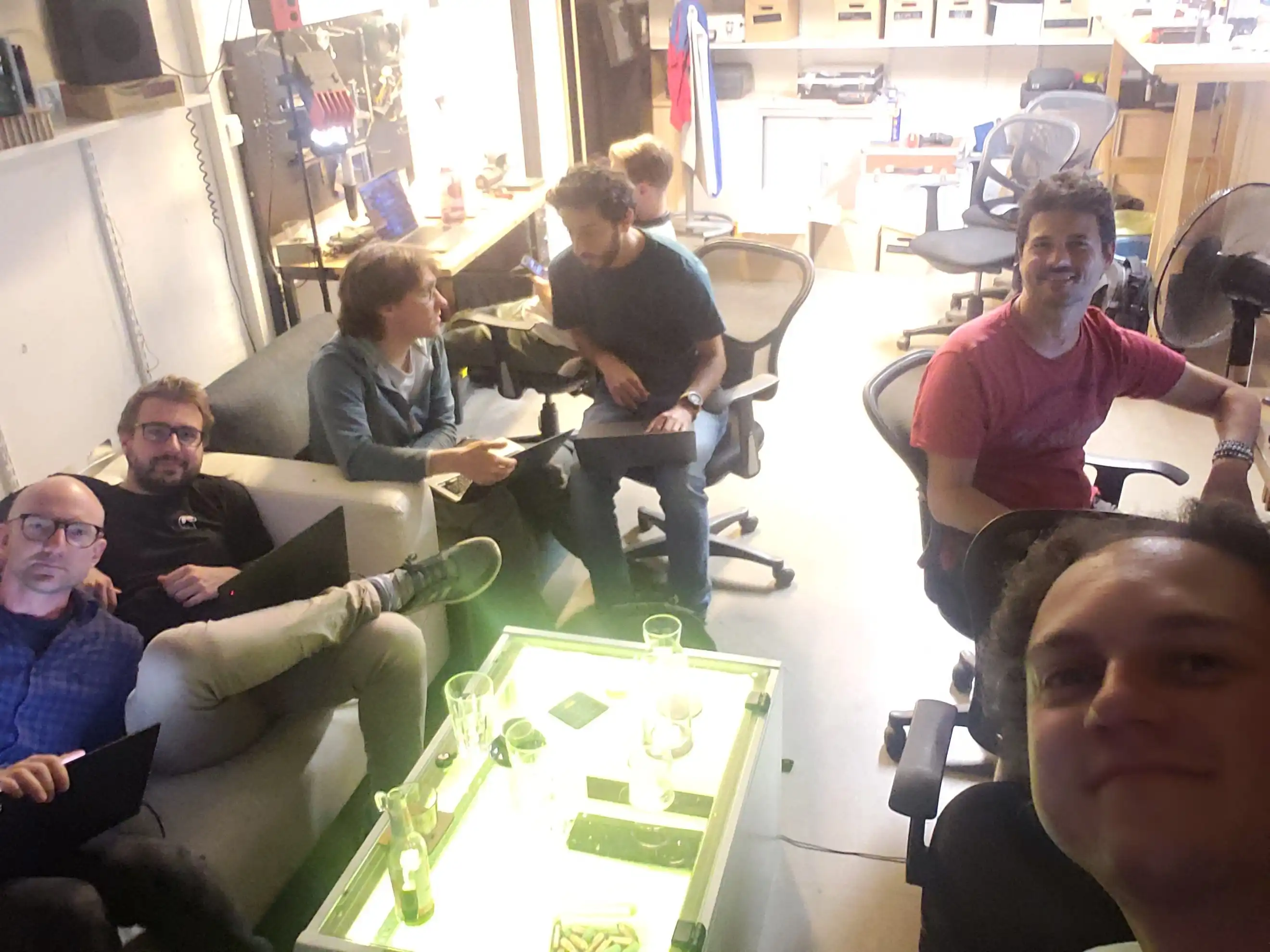
In a 2023 interview, when asked about the trajectory of his relationship with Geth, Szilágyi replied, "There have indeed been ups and downs over the years, and there have been times when I was very frustrated and wanted to throw my hands up and walk away. The worst might have been during the COVID pandemic; it was indeed quite tough. But now I still enjoy this work."
However, just a year later, Szilágyi became an "outsider" in the Ethereum community.
In fact, this is not the first time Szilágyi has criticized certain issues within the Ethereum community. Last July, he criticized Ethereum for going down the wrong path, stating that the research team had completely accepted all centralized ideas as long as they could be validated, presenting a facade of decentralized validation while essentially being centralized control. His strong wording drew significant attention from the Ethereum community and sparked intense debates about the core principles of the Ethereum network.

A month later, Szilágyi released a complaint about the crypto industry, questioning whether he had chosen the wrong industry. He said, "For example, SpaceX, they send rockets to Mars? Human progress. They fail to launch a rocket and it explodes? Humanity learns lessons and still progresses. All outcomes lead to progress.
In contrast, the crypto industry is simply a casino for fools (apologies to the few exceptions). Prices go up? Great, when to buy a sports car. Prices go down? Lives are destroyed. What contribution does it make to humanity?
In my view, this industry should have started creating something truly useful that people are willing to use, or it should shut down. At least Bitcoin tried (though it failed) to become a safe-haven asset. But the rest are just selling shovels, with no signs of a gold rush."
Looking back, it seems that at that time, Szilágyi may have encountered some unhappy events within the Ethereum Foundation.
Moreover, Szilágyi does not seem to get along well with current Ethereum Foundation director Tomasz. Nethermind, along with Besu, had stopped storing Ethereum's historical data, a decision that drew Szilágyi's public criticism, deeming it irresponsible and potentially misleading to users. This was also one of the triggers for Szilágyi's exit from Ethereum: "Since even core developers are maximizing their interests relative to other developers, why bother trying to make it better? I feel deeply disappointed in everyone involved."
On November 16, 2024, Szilágyi announced he would temporarily leave the Geth team for "vacation." However, as mentioned earlier, Szilágyi's "vacation" was due to being fired after discovering that the Ethereum Foundation was secretly funding a second Geth development team within Nethermind. He was dismissed by the Foundation within 24 hours of a one-on-one meeting with Foundation member Josh Stark, on the grounds of "threatening to resign and undermining team morale."
The Process of Budget Cuts is Undignified
This public split essentially touches on the dilemma of Ethereum's current governance structure. On one hand, the Foundation emphasizes that "multi-client consensus" is crucial for protocol security, stressing that Geth should not dominate. On the other hand, Geth has been the mainstay of protocol execution for many years, and its infrastructure quality and team experience are not easily replaceable.
In February of this year, Aya Miyaguchi, the executive director of the Ethereum Foundation, announced her transition to the newly established position of "Chair." This change marked the end of months of dissatisfaction within the community regarding the Foundation's leadership and direction.
In June, the Ethereum Foundation announced the layoff of some research and development personnel and restructured the original research team into a new department called "Protocol," focusing resources on three major technical directions: L1 scaling, blob scaling, and UX improvements. The official stance on this move was that it was an optimization of resource allocation. On one hand, it involved laying off some R&D personnel, particularly those who had long remained in the theoretical stage; on the other hand, it introduced a stricter accountability mechanism, requiring rapid conversion of research results into practical outputs.
Related reading: "Cost Reduction and Efficiency Improvement = Layoffs + Selling ETH? What Signals Are Being Conveyed by the EF's New Financial Policy"
It can be said that the Ethereum Foundation has been committed to transforming the entire team since facing ridicule in the second half of last year, but reforms inevitably encounter a period of growing pains. According to the new policy, the EF will determine the allocation ratio of fiat currency to ETH using the "operating expense ratio × buffer period" model, maintaining annual expenditures at a high level of 15%. The Foundation pointed out that 2025-2026 will be a critical phase for the ecosystem, requiring concentrated resources to advance the technical implementation of the protocol layer, including L1 scaling, blob technology, and UX optimization.
The EF stated that 2025-2026 will be a key window for advancing the protocol's implementation, expecting to maintain a 15% annual expenditure and setting a 2.5-year fiat buffer period. This means the Foundation needs to convert about 37.5% of its treasury into fiat currency to support medium- to short-term investments.
Currently, the favorable policies are continuously emerging, which is a good thing for the application layer on Ethereum. However, regarding governance, we may need to give the Ethereum Foundation a bit more time to adapt to this new phase.
免责声明:本文章仅代表作者个人观点,不代表本平台的立场和观点。本文章仅供信息分享,不构成对任何人的任何投资建议。用户与作者之间的任何争议,与本平台无关。如网页中刊载的文章或图片涉及侵权,请提供相关的权利证明和身份证明发送邮件到support@aicoin.com,本平台相关工作人员将会进行核查。




